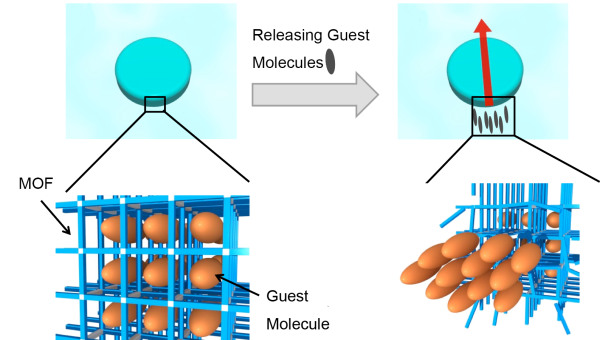Biological motors routinely convert chemical energy into mechanical power with great efficiency by utilizing non-equilibrium conditions such as concentration gradients. Taking elegant biological systems as inspiration, we have developed intelligent new artificial motors by loading a MOF with peptide ‘fuel’, the release of which creates the driving force of the motor. Reorganization of hydrophobic peptides leaving the nanopores can create a large surface-tension gradient around the MOF, leading to the propulsion of the MOF particles for an extended time. This demonstration shows a new application of MOFs and opens the door towards mimicking motile life, like bacteria.

Swimming MOF motor enabled by release of guest molecules
Autonomous motors of a metal–organic framework powered by reorganization of self-assembled peptides at interfaces
Nat. Mater. 2012 11, 1081-1085.
Peptide Assembly-Driven Metal-Organic Framework (MOF) Motors for Micro Electric Generator
Adv. Mater. 2015 27, 288-291.
Peptide-Metal Organic Framework Swimmers that Direct the Motion toward Chemical Targets
Nano Lett. 2015 15, 4019-4923.

